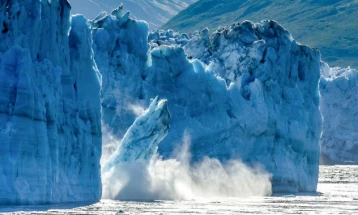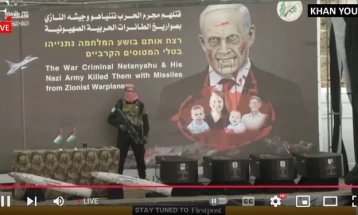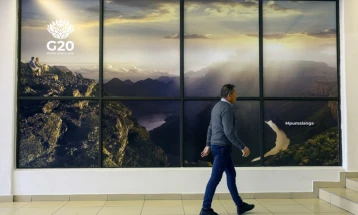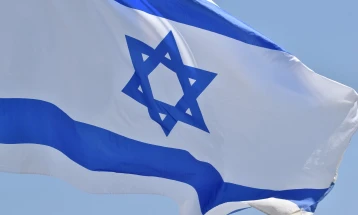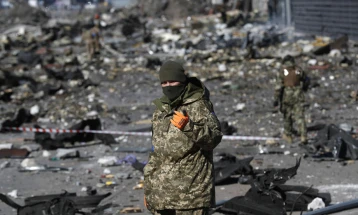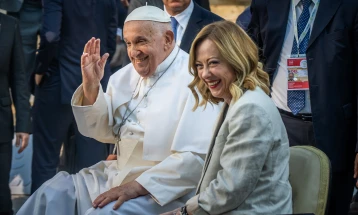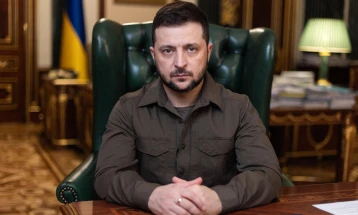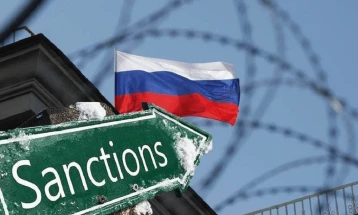European leaders wrangle over peacekeeping forces at Ukraine summit
- An emergency summit by European leaders to discuss US plans to end the war in Ukraine failed to yield any immediate results, with European leaders split on the issue of sending peacekeeping troops to monitor a potential ceasefire in Ukraine.
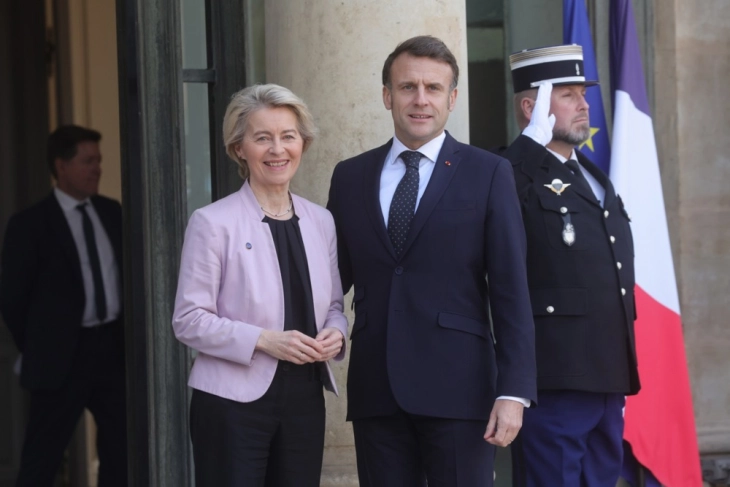
Paris, 18 February 2025 (dpa/MIA) - An emergency summit by European leaders to discuss US plans to end the war in Ukraine failed to yield any immediate results, with European leaders split on the issue of sending peacekeeping troops to monitor a potential ceasefire in Ukraine.
Speaking after the meeting convened by French President Emmanuel Macron in Paris, German Chancellor Olaf Scholz again rejected the peacekeeper debate as "completely premature."
Scholz said he was "irritated" by discussions revolving around possible outcomes of peace talks that have not yet taken place, without involving the Ukrainians. "To put it bluntly, this is highly inappropriate," the German leader said.
Ahead of the informal talks attended by the leaders of France, Germany, Britain, Italy, Poland, Spain, the Netherlands and Denmark, alongside senior EU and NATO figures, British Prime Minister Keir Starmer said he was "ready and willing" to send troops to Ukraine as part of a ceasefire deal.
France is also said to have expressed its willingness to deploy troops some time ago.
French Foreign Minister Jean-Noël Barrot spoke of very concrete talks "at various levels" regarding the deployment of troops, particularly from France, Britain and Poland – the "three major armies" in Europe.
Such a peacekeeping force would be intended to ensure a future ceasefire and a "lasting peace" in Ukraine, he told the LCI channel.
Europe pushed to the sidelines
The main goal of Monday's summit was to agree on a common strategy for dealing with US President Donald Trump, who aims to force Ukrainian President Volodymyr Zelensky and Russian President Vladimir Putin to the negotiating table, while tasking Europeans with securing a peace deal.
To this end, a request was recently received in Berlin and other European capitals to report possible contributions to security guarantees for Ukraine.
According to information obtained by dpa, the countries are to indicate, among other things, whether they could send soldiers for a peacekeeping force or training programmes after an end to the war.
At the same time, European politicians have to decide how to deal with the fact that the Trump administration does not consider them to be a vital part of peace negotiations while calling on Ukraine to make concessions.
Following the meeting, European Council President António Costa and European Commission President Ursula von der Leyen posted identical messages on X.
"Today in Paris we reaffirmed that Ukraine deserves peace through strength. Peace respectful of its independence, territorial integrity, with strong security guarantees," the pair wrote.
"Europe carries its full share of the military assistance to Ukraine. At the same time, we need a surge in defence in Europe."
EU countries and Ukraine are alarmed by the prospect of the US and Russia seeking a peace settlement bilaterally, especially after Trump spoke to Putin last week.
In order to accelerate the negotiation process with Moscow, the Trump administration has outlined a plan that would exclude Ukraine from NATO, grant Russia territorial concessions, and close the door on US participation in future peacekeeping operations.
The terms are being viewed in Europe's corridors of power as Washington turning its back on allies in favour of making a deal with Putin.
US Secretary of State Marco Rubio and Russian Foreign Minister Sergei Lavrov are expected to meet in Riyadh on Tuesday, with Trump's push for a quick peace settlement in Ukraine high on the agenda.
Many question marks remain
Macron spoke to Trump before the start of Monday's meeting, the Élysée Palace said - but initially gave no further details.
Washington has already made clear that it won't send troops to Ukraine to secure a ceasefire.
Besides France and Britain, the Netherlands and Sweden have also recently indicated that they would be open to sending troops to Ukraine.
Spain and Denmark, which had categorically ruled out such a step, have recently softened that stance, though they both said it was too early to talk about sending troops.
Contrary to the statements by the French foreign minister, Polish Prime Minister Donald Tusk took a similar position as Scholz.
"We do not plan to send Polish troops to Ukraine, but we will provide logistical and political support to countries that may want to provide such guarantees in the future," Tusk said before his departure for Paris.
Following the meeting, Tusk said Poland's position had not changed.
The number of troops that could be sent to Ukraine to secure a potential ceasefire is currently unclear, with negotiators talking about a five-digit number, dpa learnt from participants.
Diplomats have said that the current discussion centres on possibly sending European troops to western Ukraine to train Ukrainian forces.
It is considered unlikely that European forces would be sent to the front line right away to monitor a potential ceasefire.
After the summit, Scholz also outlined several non-negotiables that should not be up for debate in any potential negotiations for peace in Ukraine.
"For us, it is clear: The country must be able to continue its path into the European Union, defend its democracy and sovereignty, and be capable of maintaining its own strong army," he said.
Scholz stressed that he was fundamentally against sending peacekeeping forces to Ukraine without US involvement.
"There must be no sharing of security and responsibility between Europe and the US," he said.
NATO was based on the principles of cooperation and risk-sharing, Scholz noted.
"This must not be called into question," said the German chancellor, who may no longer get a say after upcoming parliamentary elections on Sunday.
Photo: EPA
